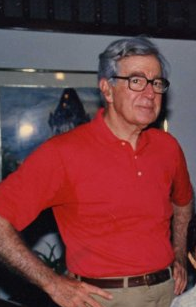
The politics of Zimbabwe takes place in a framework of a full presidential republic, whereby the President is the head of state and government as organized by the 2013 Constitution. Executive power is exercised by the government. Legislative power is vested in both the government and parliament. The status of Zimbabwean politics has been thrown into question by a 2017 coup.

César Augusto Gaviria Trujillo is a Colombian economist and politician who served as the President of Colombia from 1990 to 1994, Secretary General of the Organization of American States from 1994 to 2004 and National Director of the Colombian Liberal Party from 2005 to 2009. During his tenure as president, he summoned the Constituent Assembly of Colombia that enacted the Constitution of 1991.
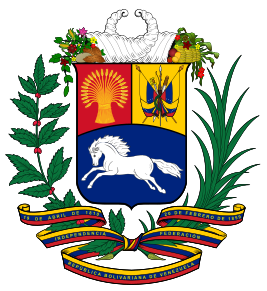
Elections in Venezuela are held at a national level for the President of Venezuela as head of state and head of government, and for a unicameral legislature. The President of Venezuela is elected for a six-year term by direct election plurality voting, and is eligible for re-election. The National Assembly (Asamblea Nacional) has 165 members (diputados), elected for five-year terms using a mixed member majoritarian system. Elections also take place at state level and local level.

Elections in Benin take place within the framework of a multi-party democracy and a presidential system. Both the President and the National Assembly are directly elected by voters, with elections organised by the Autonomous National Electoral Commission (CENA).
The Constituent Assembly of Colombia was formed on February 5, 1991, to draft the Colombian Constitution of 1991. It was dissolved in June 1991, after the new document was adopted nationwide.
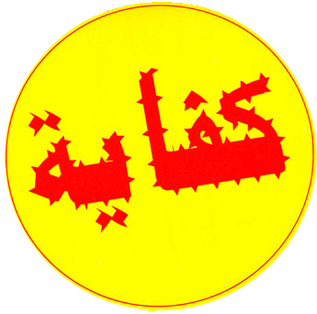
Kefaya is the unofficial moniker of the Egyptian Movement for Change, a grassroots coalition which prior to the 2011 revolution drew its support from across Egypt's political spectrum. It was a platform for protest against Hosni Mubarak's presidency and the possibility he might seek to transfer power directly to his son Gamal; political corruption and stagnation; "the blurring of the lines between power and wealth; and the regime's cruelty, coercion and disregard for human rights."

The Constitution of Colombia, better known as the Constitution of 1991, is the current governing document of the Republic of Colombia. Promulgated on July 4, 1991, it replaced the Constitution of 1886. It is Colombia's ninth constitution since 1830. See a timeline of all previous constitutions and amendments here. It has recently been called the Constitution of Rights.

Horacio Serpa Uribe is a Colombian lawyer, politician and current Senator of Colombia. Serpa has run as the Colombian Liberal Party candidate for President of Colombia on three occasions; in 1998, 2002, and 2006. He previously served as congressman for Santander as Senator, Inspector General of Colombia, president of the National Constituent Assembly, Minister of the Interior, and as Ambassador of Colombia to the Organization of American States. He was also involved in the 8000 process scandal in which money from the Cali Cartel entered the presidential campaign of Liberal candidate Ernesto Samper. In 2007 Serpa ran for the governorship of Santander Department and was elected on October, 28 in the Colombian regional elections.
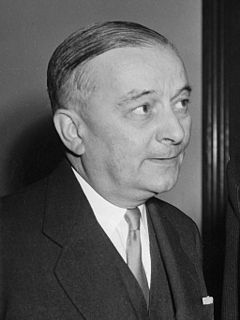
Legislative elections were held in France on 2 June 1946 to elect the second post-war Constituent Assembly designated to prepare a new constitution. The ballot system used was proportional representation.

An election for the National Assembly of Senegal was held on 29 April 2001. The election was held under the new constitution approved by referendum earlier in the year. Following the victory of Abdoulaye Wade in the February–March 2000 presidential election, the Sopi Coalition, including Wade's Senegalese Democratic Party and its allies, won a large majority.

Presidential elections were held in Colombia on 27 May 1990. In an election tarnished by violence, the result was a victory for César Gaviria of the Liberal Party, who received 48.2% of the vote.
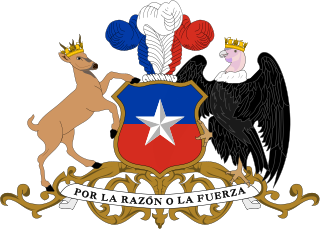
A constitutional referendum was held in Chile on 30 August 1925. Voters were offered a choice of two draft constitutions; one prepared by a subcommission and supported by President Arturo Alessandri, and a more conservative document prepared by Congress. The liberal version, supported by Alessandri, won an overwhelming victory and the resulting constitution provided a period of stability and a reduction in the power of the previous conservative oligarchy.

A referendum on electing a Constitutional Assembly was held in Colombia on 27 May 1990 alongside presidential elections. The proposal was approved by 96% of voters. A Constitutional Assembly was later elected in December 1990 and produced the 1991 constitution.

Constitutional Assembly elections were held in Colombia on 9 December 1990 alongside a referendum on the Assembly itself. The Assembly sat from February to July 1991 and drew up the 1991 constitution.

A fourteen-part referendum was held in Ecuador on 25 May 1997. Voters were asked whether they approved of the dismissal of President Abdalá Bucaram by the National Congress, the appointment of Fabián Alarcón as interim President for twelve months, the calling of a Constitutional Assembly, whether a Constitutional Assembly should be elected by direct elections or by appointment, whether spending limits should be introduced for election campaigns, whether voters should be able to modify electoral lists, whether National Assembly elections should be held alongside the first or second round of presidential elections, whether political parties that fail to cross the 5% threshold in two consecutive elections should be deregistered, whether the Supreme Electoral Tribunal (TSE) should reflect the political makeup of the National Congress, whether the National Congress should appoint managers of state-owned companies with a two-thirds majority, reforms to the justice system, allowing the Supreme Court to appoint judicial authority member, whether elected officials who commit a criminal offence should be removed from office, and whether the National Assembly should implement the 13 proposals. All eleven proposals were approved by voters.

Parliamentary elections were held in Colombia on 27 October 1991 to elect the Senate and Chamber of Representatives. The result was a victory for the Liberal Party, which won 87 of the 161 seats in the Chamber and 56 of the 102 seats in the Senate.

An Icelandic Constitutional Council (Stjórnlagaráð) for the purpose of reviewing the Constitution of the Republic was appointed by a resolution of Althingi, the Icelandic parliament, on 24 March 2011. Elections were held to create a Constitutional Assembly (Stjórnlagaþing) body, but given some electoral flaws, had been ruled null and void by the Supreme Court of Iceland on 25 January 2011, leading the parliament to place most of the wining candidate into a Council with similar mission. The question of whether the text of the proposed constitution should form a base for a future constitution was put to a non-binding referendum, where it won the approval of 67% of voters. However, the government's term finished before the reform bill could be passed, and the next government has not acted upon it.

A constitutional referendum was held in Ivory Coast on 30 October 2016. Voters were asked whether they approve of a proposed new constitution. The new constitution would create a Senate, remove the nationality clause from the presidential requirements and establish the post of Vice-President. The constitution was approved by 93.42% of votes with a 42.42% turnout, as announced by the president of the Independent Electoral Commission (CEI).




